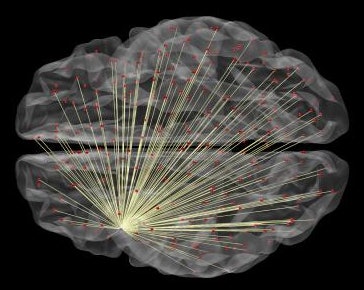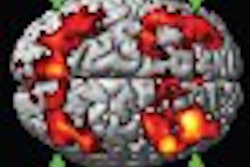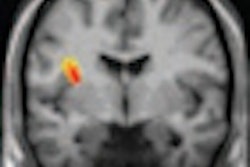
An analysis of functional MRI (fMRI) brain scans suggests that neural pathways connecting the left lateral prefrontal cortex to the rest of the brain could hold answers as to why some people are smarter than others. Results of the study were published in the Journal of Neuroscience.
Functional MR images show how the strength of those pathways may reflect as much as a 10% difference in intelligence between individuals, according to the researchers from Washington University in St. Louis and other institutions.
Lead study author Michael Cole, PhD, a postdoctoral research fellow in cognitive neuroscience at Washington University, said the study is the first to provide evidence that such neural connections make a significant contribution to the cognitive process for human intelligence (J Neurosci, June 27, 2012, Vol. 32:26, pp. 8988-8999).
The MR images were acquired of subjects during a series of mentally challenging tasks, such as indicating whether a currently displayed image is the same as one displayed three images previously. The results indicated that levels of global brain connectivity with a part of the left lateral prefrontal cortex serves as a strong predictor of both intelligence and cognitive control abilities.
 |
| Functional MR image shows the strength of neural connections in the brain, which could determine a difference of as much as 10% in individuals' intelligence. Image courtesy of Washington University and Michael Cole, PhD. |
One possible explanation of the findings, the authors noted, is that the lateral prefrontal region is a "flexible hub" that uses its extensive brainwide connectivity to monitor and influence other brain regions in a goal-directed manner.
Therefore, intelligence may be partly based on whether the lateral prefrontal cortex performs well, and whether it can communicate effectively with the rest of the brain, Cole and colleagues speculated. Essentially, the lateral prefrontal cortex helps keep people focused on a task, and effective communication within the brain allows for intelligent completion of those tasks.
Although much remains to be learned about how these neural connections contribute to fluid intelligence, the authors noted that new models of brain function suggested by this research could have important implications for the future understanding and possible augmentation of human intelligence.
The findings may also help researchers better understand how abnormalities in brain connectivity contribute to cognitive control deficits seen in schizophrenia and other mental illnesses.




















